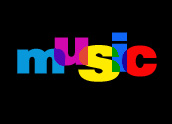
The Department of Justice has cleared the path for Live Nation and Ticketmaster to merge — but with several conditions attached, including significant support to companies that will be formed to provide competition.
The two firms, which announced the possibility of a merger a year ago, have agreed to the conditions, setting the stage for the creation of a large, multifaceted, multiservice live music company. Essentially, the combined company will manage artists, arrange for their bookings — most likely at venues owned by the company — and then sell tickets to their concerts.
The prospect of end-to-end control prompted many in the industry — from artists such as Bruce Springsteen to advocacy groups like the National Consumers League — to protest the deal, with fears of higher ticket prices being the main complaint.
The Obama administration promised to give the proposed deal a stringent review.
New Competition
The DoJ’s proposed solution was the creation of two rival companies that would keep the ticket sales market competitive. The merged company, Live Nation Entertainment, will have to license its ticketing software to, AEG Live, a subsidiary of Anschutz Entertainment Group that owns some 100 venues. The point will be for AEG to create its own ticketing service.
Ticketmaster will also sell a subsidiary, Paciolan, that provides industry-specific software for venue operators. Comcast Spectacor, the cable company’s sporting events division, has signed a letter of intent to acquire the subsidiary.
The Justice Department deal forbids Live Nation Entertainment from retaliating against venue owners that work with these competitors.
Approval of the deal is also contingent upon acceptance of a 10-year period of government oversight.
What the Justice Department is proposing are extraordinary conditions, according to Howard Morse, a former senior official with the Federal Trade Commission and currently a Washington, D.C.-based antitrust partner with Drinker Biddle & Reath.
“The DoJ is requiring not only structural remedies — licensing of ticketing software to AEG and divestiture of an established ticketing business to Comcast-Spectacor — but is also imposing behavioral remedies, what DoJ officials are calling ‘anti-retaliation’ provisions, to keep the merged company in check,” he told the E-Commerce Times. “They are imposing, among other things, prohibitions on bundling and use of consumer ticketing information.”
The Justice Department had been prepared to litigate the case if necessary, Christine Varney, head of the antitrust division, told reporters.
Now that both firms have agreed to the terms, ticket prices are likely to decline, she said.
Still Many Skeptics
Despite those assurances, there is still skepticism about the deal and its impact — not only on consumers who buy tickets, but also on the venues that book shows.
This merger makes sense for the two companies and their shareholders, said N. Venkatraman, a professor of management at Boston University.
However, “I cannot see how it helps the customers, who increasingly rely on the convenience provided by such ticketing agencies on the Web for obtaining their tickets,” he told the E-Commerce Times. “There are so many different ways that these companies now charge for their services. I cannot but help think that the premium — i.e., service — charges will only go up.”
That will depend on whether Ticketmaster’s sale of Paciolan and its licensing of ticketing software to AEG succeeds in creating real competition for Ticketmaster, which has an extraordinarily strong hold on the entertainment ticketing business, said Richard J. Hoskins, an antitrust partner at Schiff Hardin and a senior lecturer at Northwestern University Law School.
If healthy competition is created, the merger could well have procompetitive results, he told the E-Commerce Times. “I obviously have not examined the record the way the Justice Department has, but I am cautiously optimistic that the sale and licensing provisions, combined with the 10-year period of government oversight, will result in a plus for consumers.”
New Competitors Don’t Stand a Chance
On the other end of the opinion spectrum is Eric Karson, associate professor of marketing at Villanova School of Business.
“What were the regulators thinking? Sure, selling off the software side allows for the appearance/development of competitors, but at bottom, it is all about the brand,” he told the E-Commerce Times.
“Let’s face it, an established behemoth with a huge war chest has an edge. In the ever-increasingly important pay-per-click world, how can you bid against a giant? I have to believe that this advantage will translate into the growing mobile market as well.”
As the new venture gets under way, it would do well to take into account some of these fears, said Sally A. Wright, president of the Alliance Consulting Group.
“Ticketmaster already has a reputation for piling on ‘convenience fees’ that irritate customers,” she noted.
“Now, despite concessions, the merger has gotten some negative press,” Wright told the E-Commerce Times. “Live Nation Entertainment needs to come out of the starting gate with a strong customer-centric message and really mean it.”























































This type of merger really affects the small businesses trying to get a foot in the ticketing market. We need to support fair ticket sales and management solutions like HoldMyTicket.com!